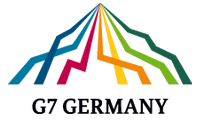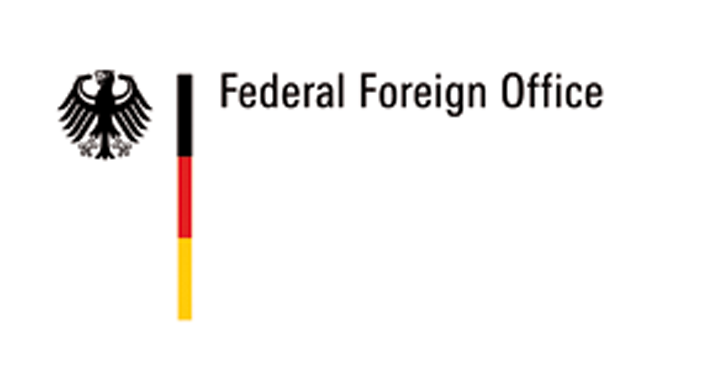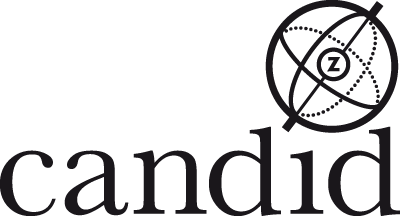Representatives of civil society in the Arab world submit their demands for future cooperation with the G7
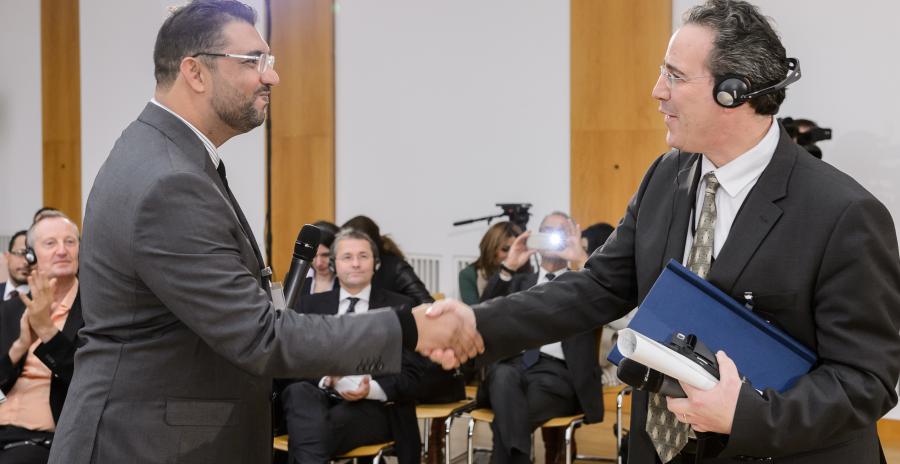
Around 100 representatives of civil society in 6 Arab countries in transition (ACT) have set the course for the future of the cooperation with the G7 member states. On Monday, November 30, they presented a document containing 40 demands and recommendations to governments, international financial institutions and the public at large. The delegates had compiled it during a 3-day conference in Berlin and ratified and submitted it to the German Federal Office on November 19.
قام أكثر من مائة ممثل للمجتمع المدني من ست دول من الشرق الأوسط وشمال إفريقيا بوضع أسس للتعاون المستقبلي مع مجموعة الدول الصناعية السبع المعروفة بـ G7. وقد تم تسليم النسخة النهائية من تلك الاقتراحات يوم الاثنين الموافق 30 نوفمبر/تشرين الثاني للحكومات والمؤسسات المالية الدولية وللجمهور. بينما اعتمد المشاركون خلال المؤتمر الذي استمر لمدة ثلاث أيام في مبنى وزارة الخارجية بالعاصمة الألمانية وثيقة تحتوي على ثمانية وثلاثين مطلباً وتوصية تم تسليمهم للخارجية الألمانية يوم 19 نوفمبر
Final Recommendations of the Deauville Partnership Conference (English)
التوصيات النهائية لمؤتمر شراكة دوفيل (Arabic)
The conference was held within the framework of the G7 Deauville Partnership, presided over by Germany in 2015. Besides the G7 member states, the partnership currently includes six Arab countries in transition (Morocco, Tunisia, Libya, Egypt, Jordan, Yemen), as well as Turkey and the Gulf states. It aims to strengthen the economic and democratic development of the states affected by the upheavals of the 'Arab Spring'.
The delegates asked the partner states and the international financial institutions such as the World Bank and the International Monetary Fund (IMF) to engage and cooperate more directly with civil society organisations. They stressed the need for new strategies to adapt to an environment of crises and wars, as these circumstances necessitate even more support for civil society.
Moreover, they demanded that the G7 and Deauville partner states should attach cooperation with governments in the Arab world more decisively to protection of civil society activists. The delegates also called for a close link between entrepreneurship and civil society organisations such as human rights and other advocacy groups to foster social justice and economic growth – and to give their voices more weight in policy. "Civil society participation in decision-making processes creates justice and helps us in the long run to fight the root causes of terrorism, as well," said Tunisian delegate Moncef Cheikh-Rouhou on Thursday in Berlin.
To this end, the delegates advocated, among other things, in their final paper for the G7 to guarantee "open market access for the export of goods and services, also advocating stronger intraregional market integration and strategically embedding the informal sector," the document says.
The 3-day conference 'Deauville Partnership – A Civil Society Outreach' has been jointly organised by the Federal Foreign Office and the Berlin -based think tank Candid Foundation gGmbH and has been supported by the six political foundations (Konrad- Adenauer Foundation, Friedrich Ebert Foundation, Hanns-Seidel Foundation, Heinrich Böll Foundation, Friedrich Naumann Foundation, Rosa Luxemburg Foundation).
تم عقد المؤتمر على هامش شراكة دوفيل G7 التي ترأسها المانيا لعام 2015. وقد شمل المؤتمر أعضاء الشراكة وممثلي الدول العربية التي تمر بمرحلة انتقالية وهم المغرب، تونس، ليبيا، مصر، الأردن واليمن بالإضافة إلى تركيا ودول الخليج العربي. وكان الهدف الأساسي للمؤتمر هو تعزيز التنمية الاقتصادية والديمقراطية في البلدان المعنية بتحولات "الربيع العربي" عن طريق تقديم مساندات مادية وسياسية.
وقام المشاركون بالطلب من شركاء دوفيل والمؤسسات المالية الدولية (مثل البنك الدولي وصندوق النقد الدولي) بالتعاون بشكل مباشر ووثيق مع منظمات المجتمع المدني. كما قاموا بتوضيح ضرورة وضع استراتيجيات تلائم الأزمات والتحديات التي تمر بها تلك البلدان، وذلك لأن الظروف الحالية تتطلب المزيد من الدعم للمجتمع المدني. كما طالبوا مجموعة الدول الصناعية السبع وشركاء دوفيل بربط العمل مع حكومات الدول العربية على أساس توفير حماية للمشاركين في المجتمع المدني.
وعلى نطاق اخر طالب المشاركون بخلق علاقة أوثق بين رواد الأعمال ومنظمات المجتمع المدني مثل منظمات الدفاع عن حقوق الإنسان والمنظمات التي تدعم العدالة الاجتماعية والتنمية الاقتصادية. وأكدوا على أهمية إعطاء هذه المنظمات وزن أكبر في عملية صنع القرار. حيث قال الخبير الاقتصادي منصف شيخ روحو أحد أعضاء المؤتمر في برلين أن "مشاركة المجتمع المدني في عملية اتخاذ القرار بخصوص المستقبل الاقتصادي للبلاد تساعد على خلق المزيد من العدالة بل وأنها ايضاً تساهم في محاربة الإرهاب على المدى البعيد".
وأخيراً، دعا المشاركون في الوثيقة النهائية بمنع وجود حواجز للأسواق "يجب على مجموعة الدول الصناعية السبع ضمان فتح السوق الدولي أمام الصادرات من السلع والخدمات، بالإضافة إلى دعم السوق الإقليمي ووضع استراتيجيات تمكن القطاعات الغير رسمية من الاندماج في الاسواق“.
هذا وقد استمر مؤتمر "شراكة دوفيل -التعاون مع المجتمع المدني" لمدة ثلاثة أيام، وتعاونتا في تنظيمه وزارة الخارجية الألمانية ومركز أبحاث مؤسسة كانديد الخيرية ومقرها في برلين، وتم دعمه من ستة مؤسسات المانية وهم: مؤسسة كونراد ادناور، فريدريش ابرت، هانس زايدل، هاينريش بول، فريدريش ناومن ومؤسسة روزا لوكسمبورج.
Press Contact:
Candid Foundation gGmbH Chausseestraße 11
10115 Berlin
Phone: +49 30 39 835 188 0
Mail: berlin@candid-foundation.org
Web: www.candid-foundation.org
Supported by
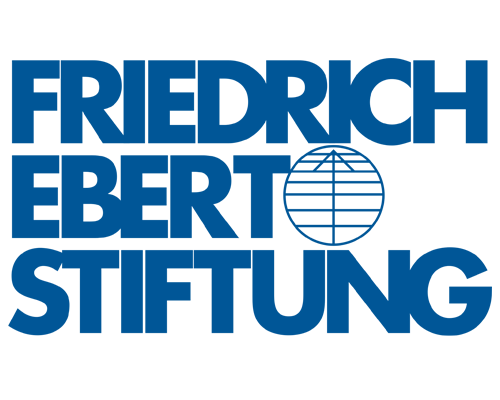
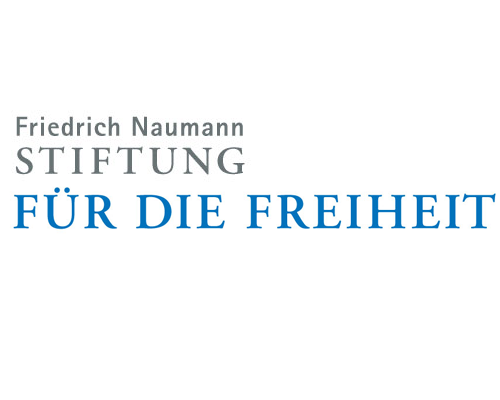


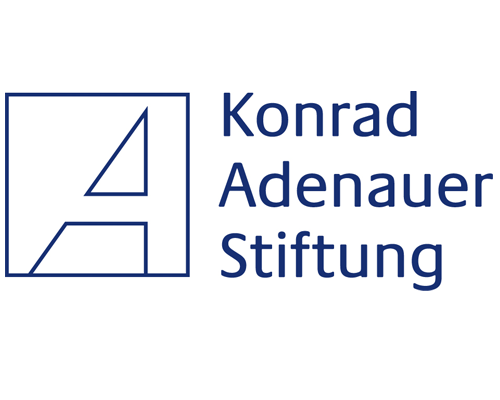
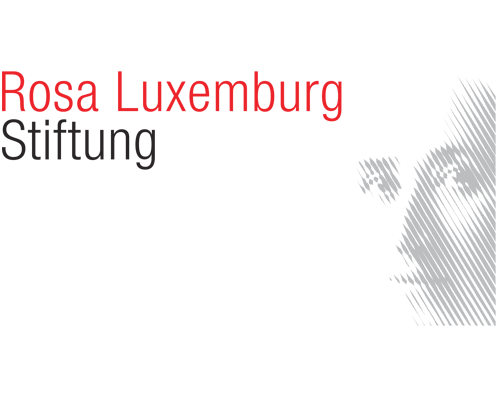
© CANDID Foundation gGmbH 2015

